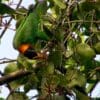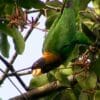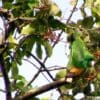Caica Parrot
Also known as:
Hooded Parrot
Also known as:
Hooded Parrot

Pyrilia

caica
Size:
23 cm (9 in)
Weight:
121-141 g (4.2-5 oz)
Subspecies including nominate:
one
Colour Adult:
Both adults green in general; black/brown head; yellow/brown wide collar around nape and hindneck, with dark brown scalloping; olive/brown throat and upper breast; green bend of wing, carpal edge and underwing coverts. Beak horn-coloured. Eye ring bare and pale grey. Eye orange.
Colour Juvenile:
Green occiput and crown; olive/green cheeks; yellow collar around hindneck, scalloping absent; green throat and upper breast with olive/yellow wash.
Call:
Not very vocal; any calls made in flight are nasal or hornlike. When perched a nasal, honking sound.
More Information:
Content Sources:
CITES
BirdLife International
Cornell Lab of Ornithology/Birds of the World
Parrots: A Guide to Parrots of the World, Juniper and Parr, 1998
Parrots of the World, Forshaw, 2006. 2010 edition
Lexicon of Parrots, Thomas Arndt.
Captive Status:
Virtually unknown in captivity.
Longevity:
—
Housing:
Inside enclosure 2 x 2 x 3 m (6.5 x 6.5 x 9.8 ft).
Diet:
Fruits such as: apple, pear, banana, oranges, pomegranate, cactus fruits, mango, papaya; vegetables such as: carrot, celery, green beans, peas in the pod; lory nectar or porridge; small seed mix such as: millet, canary, safflower, oats, and a little hemp and sunflower; sprouted seed in spring and summer; vitamin and mineral supplements particularly C; complete kibble if taken.
Enrichment:
Provide unsprayed, bird-safe flowering and budding branches. Also wooden block toys, vegetable tanned leather toys and heat sterlized pine cones.
Nest Box Size:
Vertical box 10″ x 10″ x 24″ (25.4 cm x 25.4 cm x 61 cm)
Clutch Size:
Not recorded.
Fledging Age:
—
Hatch Weight:
—
Peak Weight:
—
Weaning Weight:
—
World Population:
As many as 250,000 mature individuals, decreasing.
IUCN Red List Status:
Least Concern
CITES Listing:
Appendix II
Threat Summary:
Not globally threatened. Uncommon and local in E Venezuela, locally frequent in Guyana, scarce throughout Surinam, apparently common in interior French Guiana, and uncommon and local in N Brazil. Is vulnerable to hunting and persecution. The primary threat is accelerating deforestation in its range, as land is cleared for cattle ranching and soy production and facilitated by the expansion of the road network. In Venezuela, the species is threatened as illegal gold mines are spreading into areas where the species was once reported.
Range:
E Amazonia in Guianas, N Brazil, and E Venezuela.
Habitat:
Found up to 1100 m (3608 ft) in lowland terra firme rainforest, sometimes at forest edge.
Wild Diet:
Feeds on seeds of Dracoides sagotianu, Protium, and Brosium. Once observed feeding on small red fruits.
Ecology and Behaviour:
Social. Mainly seen in small groups outside of breeding season. Birds forage in tree tops. Mainly keeps to upper canopy but may be seen on single bare branches projecting up and above canopy.
Clutch and Egg Size:
Not recorded.
Breeding Season:
November-January. Nest is in tree hollow.
Related Links:
—
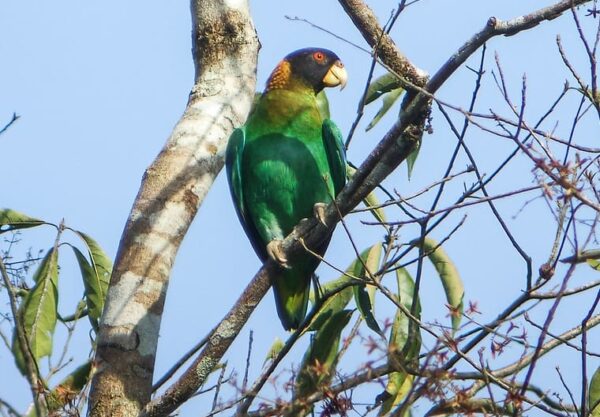
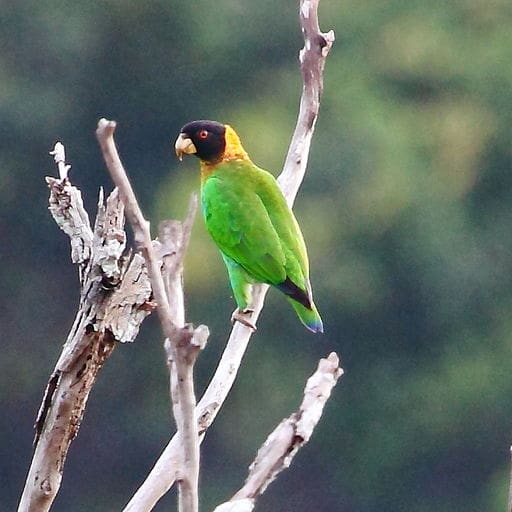
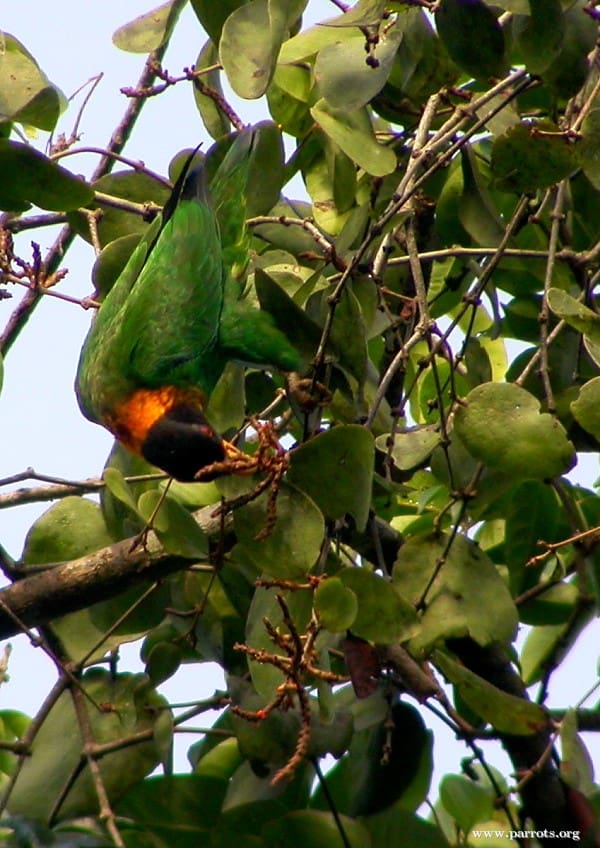
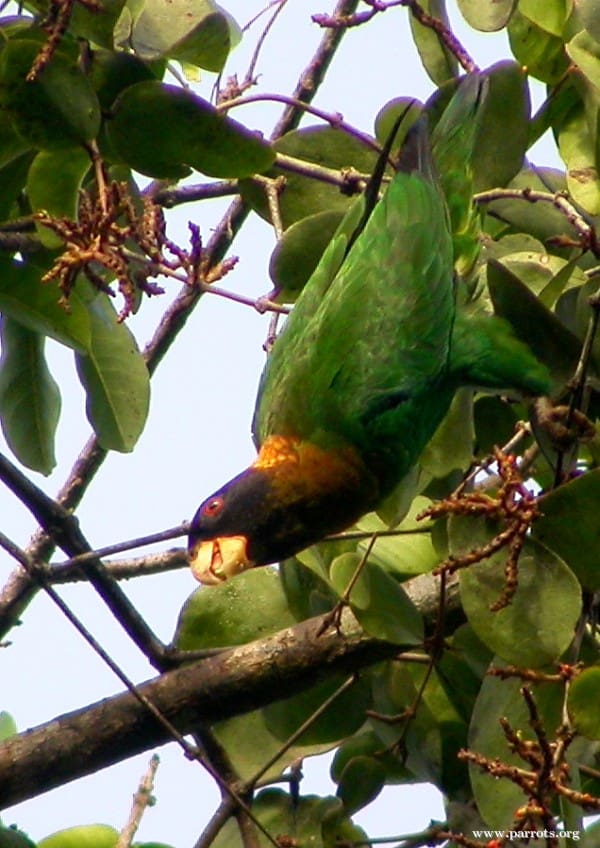
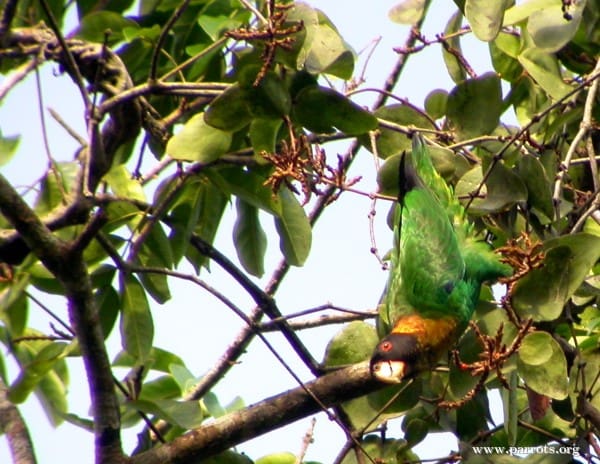
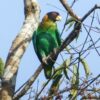
![© Hector Bottai (Own work) [CC BY-SA 4.0] via Wikimedia Commons A wild Caica Parrot perches on a branch](https://parrots.org/wp-content/uploads/2023/01/wpt_Caica-Parrot_1394-5-100x100.jpg)
